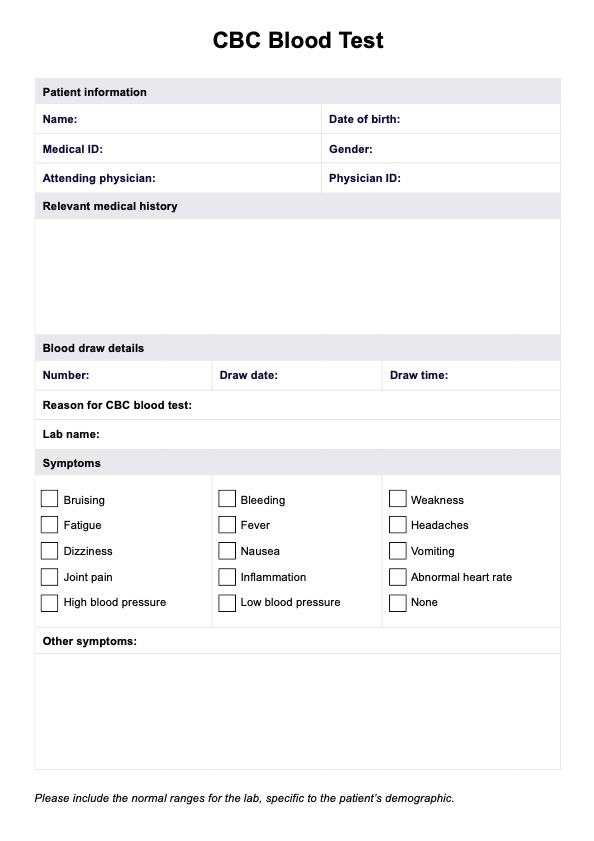CBC blood tests are safe. Patients might feel slight pain when the needles are inserted into their veins, and at worst, they will feel a bit lightheaded afterward.

CBC Blood Test
Download our CBC Blood Test Template to organize and document complete blood count results accurately.
Use Template
CBC Blood Test Template
Commonly asked questions
No. It can point to possible conditions (and, in some cases, rule certain diagnoses out), but it doesn’t confirm them. Other tests will be able to do that. This blood test is usually one of the first steps in the diagnostic process.
No. CBC blood tests focus on our blood cells. Blood chemistry panels focus on assessing chemicals present in our blood to help determine their impact on our organs.
EHR and practice management software
Get started for free
*No credit card required
Free
$0/usd
Unlimited clients
Telehealth
1GB of storage
Client portal text
Automated billing and online payments











